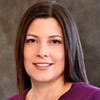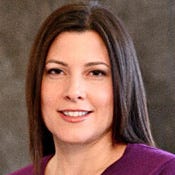How Mobile, Cloud, Are Transforming HealthcareHow Mobile, Cloud, Are Transforming Healthcare
Spurred by a combination of government incentives and aging technology, healthcare is entering an IT renaissance with mobile and cloud technologies at the center.


9 Tablets For Doctors
9 Tablets For Doctors (click image for larger view and for slideshow)
Spurred by a combination of government incentives and aging technology, healthcare is entering an IT renaissance. Mobile and cloud technologies are at the heart of healthcare's transformation. Tablets are replacing paper medical charts, private clouds are enabling secure access to medical records, and mobile cloud collaboration tools are improving information sharing among medical professionals and academics.
Mobile and cloud healthcare services are also being used to solve a wide range of challenges, such as fraud, remote diagnostics, and patient CRM.
In addition to storing medical records, cloud services are also stepping in to fight healthcare fraud. It's estimated that fraud accounts for as much as $260 billion, or at least 10 percent of annual U.S. healthcare expenses. Predictive modeling, commonly used in the financial services and telecommunications industries to combat fraud, is now being applied healthcare payments.
[ Are iPads the right answer? See Physicians: iPad Not Ready For Clinical Use.]
Verizon, for example, uses predictive modeling tools to examine healthcare payment requests and route potentially fraudulent claims to case managers for investigation. The Verizon Fraud Management for Healthcare platform is designed to help identify fraud before payments are made, thereby reducing improper payments and the administrative and legal costs associated with traditional "pay-and-chase" recovery operations. The platform currently processes more than 20 billion records every day, including more than 700 million call records.
RehabCare Group, a 28-year-old St. Louis-based provider of therapeutic services, uses smartphones, iPads, and the cloud to improve the patient care experience. The company built a custom cloud-based app on top of SalesForece.com to create a paperless patient preadmission and screening process. RehabCare also uses the app to capture vital information at the point of care to provide better documentation. The company also uses mobile devices for tasks such as training for care providers and providing maps to patients and their families. By combining mobile, mobile device management, and cloud computing, Rehabcare has secure access to its data 24-7. It also has its medical information integrated with its CRM system to prevent customer care issues.
Replacing paper and improving data capture is a logical first step for mobile healthcare, but the next step is real-time and remote patient monitoring. Advanced Micronic devices, i2iTelesolutions, and RIM teamed up in India to build a patient-monitoring solution that uses a BlackBerry PlayBook and the eTraq application to give doctors access to patient monitors connected to the hospital's Central Monitoring System. A patient's vital information can be displayed in real time and monitored for anomalies. Data can be monitored remotely as well as archived for compliance analysis. This remote monitoring system helps doctors make timely decisions even if they're not physically present with a patient; it also enables doctors to analyze and a patient's condition in the ambulance before arrival at the emergency facility.
We've entered the Mobile Cloud era. Mobile devices and cloud technologies will shift IT's vision of where data should be located and how it will be accessed.
The Enterprise 2.0 Conference brings together industry thought leaders to explore the latest innovations in enterprise social software, analytics, and big data tools and technologies. Learn how your business can harness these tools to improve internal business processes and create operational efficiencies. It happens in Boston, June 18-21. Register today!
About the Author
You May Also Like






